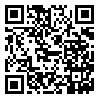Volume 15, Issue 1 (Spring 2020)
Salmand: Iranian Journal of Ageing 2020, 15(1): 2-13 |
Back to browse issues page
Download citation:
BibTeX | RIS | EndNote | Medlars | ProCite | Reference Manager | RefWorks
Send citation to:



BibTeX | RIS | EndNote | Medlars | ProCite | Reference Manager | RefWorks
Send citation to:
Mirmohammadkhani M, Ziari A, Momeni M. Systematic Review and Meta-analysis of Health Literacy in Iranian Older Adults. Salmand: Iranian Journal of Ageing 2020; 15 (1) :2-13
URL: http://salmandj.uswr.ac.ir/article-1-1713-en.html
URL: http://salmandj.uswr.ac.ir/article-1-1713-en.html
1- Social Determinants of Health Research Center, Semnan University of Medical Sciences, Semnan, Iran.
2- Department of Health Information Technology, School of Rehabilitation, Semnan University of Medical Sciences, Semnan, Iran. ,mmomeni386@gmail.com
2- Department of Health Information Technology, School of Rehabilitation, Semnan University of Medical Sciences, Semnan, Iran. ,
Abstract: (8855 Views)
Objectives: Health Literacy is the capacity of individuals to obtain, interpret, and understand health information for appropriate decision making. Elderly self-care is a supportive strategy in many diseases that requires a high level of health literacy. The aim of this study was to determine the level of health literacy of Iranian elderly people based on scientific evidence.
Methods & Materials: The search was carried out in international and regional scientific databases as well as Google Scholar, using the keywords "health literacy,” "aging", and "Iran" in Persian and English, until 2018 October. Totally 321 titles were retrieved. After screening, the full text of 13 articles on the health literacy of Iranian older adults was examined. Finally, the information of 6 articles which was qualitatively appropriate and relevant to the criteria for entering the study, were included in the meta-analysis. Meta-analysis was performed by using STATA software.
Results: The mean score of health literacy in the elderly is 45.8 and the estimated 95% confidence interval is 36.05 to 55.55. Based on the results of a repeated meta-analysis in subgroups (based on gender-disaggregated data), the average health literacy score in male population is higher than that of women (57.24 vs 44.28).
Conclusion: The results of this study showed that the Iranian older adults have a relatively low level of health literacy. Considering the importance of health literacy and its impact on the quality of life of this population, Planning and effective interventions to improve the health literacy of the Iranian elderly are needed.
Methods & Materials: The search was carried out in international and regional scientific databases as well as Google Scholar, using the keywords "health literacy,” "aging", and "Iran" in Persian and English, until 2018 October. Totally 321 titles were retrieved. After screening, the full text of 13 articles on the health literacy of Iranian older adults was examined. Finally, the information of 6 articles which was qualitatively appropriate and relevant to the criteria for entering the study, were included in the meta-analysis. Meta-analysis was performed by using STATA software.
Results: The mean score of health literacy in the elderly is 45.8 and the estimated 95% confidence interval is 36.05 to 55.55. Based on the results of a repeated meta-analysis in subgroups (based on gender-disaggregated data), the average health literacy score in male population is higher than that of women (57.24 vs 44.28).
Conclusion: The results of this study showed that the Iranian older adults have a relatively low level of health literacy. Considering the importance of health literacy and its impact on the quality of life of this population, Planning and effective interventions to improve the health literacy of the Iranian elderly are needed.
Type of Study: Research |
Subject:
gerontology
Received: 2018/12/13 | Accepted: 2019/06/24 | Published: 2020/04/01
Received: 2018/12/13 | Accepted: 2019/06/24 | Published: 2020/04/01
Send email to the article author
| Rights and permissions | |
 |
This work is licensed under a Creative Commons Attribution-NonCommercial 4.0 International License. |








